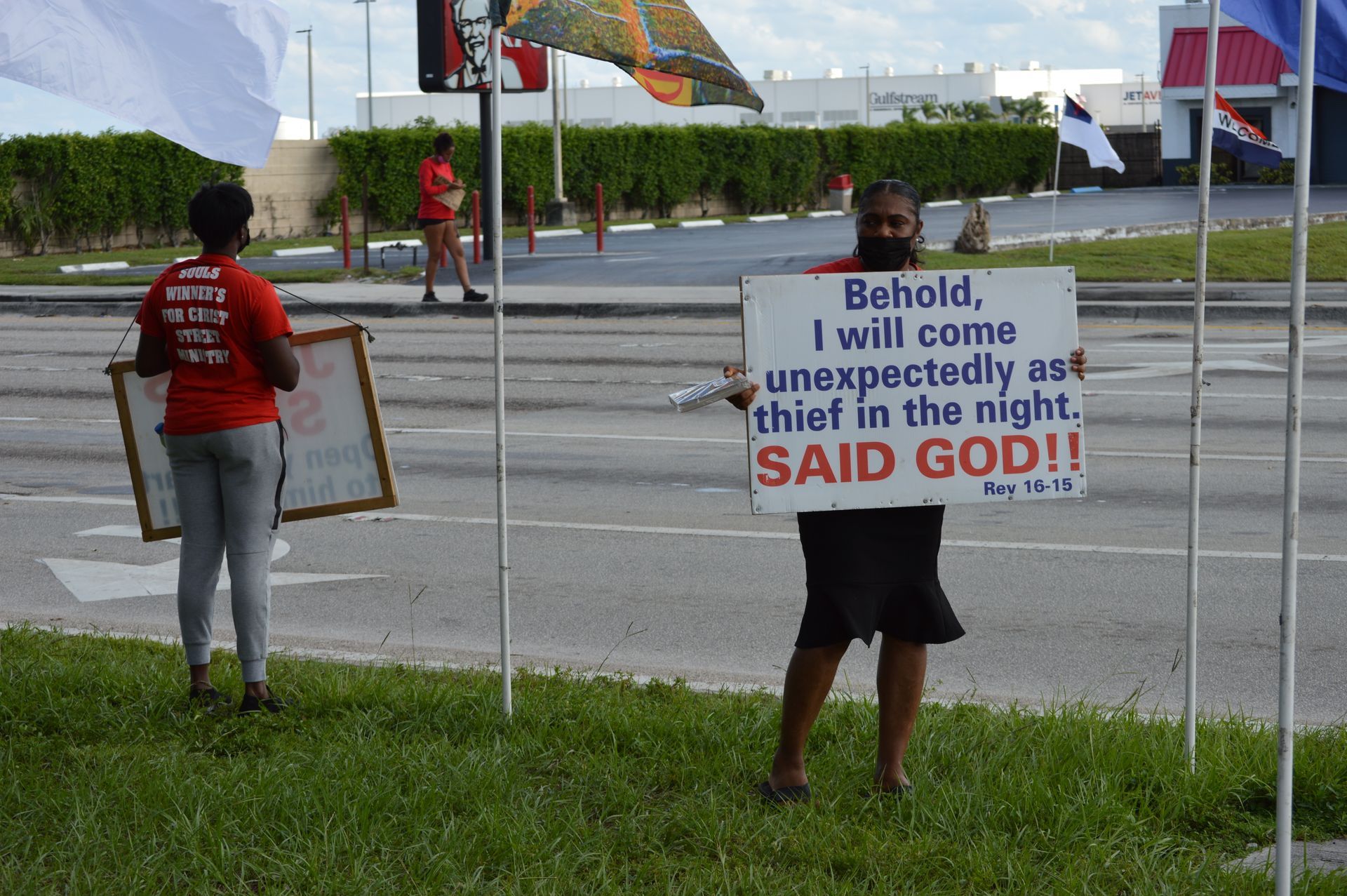Children, Have Ye Any Meat?
Children, Have Ye Any Meat?
John 21:5
Ernest L. Williams, Sr.
May 1, 2022
Historical and Cultural Settings
John, the brother of James we accept as the author of this gospel. He is the author of Revelation,
1, 2, and 3 John. Scholarship has objected to his authorship of some of these writings. We accept
them as being from John. The book has a late date range in the early 80s.
Theological Setting
The book is highly theological as compared to the other gospels. John is not concerned with
Jesus’ chronological three-year ministry as seen in the other gospels. Even though John’s gospel
is chronological, John’s chronology is on a different course respect to the synoptics. For
example, John only records seven of Jesus’ miracles that John calls signs.
1. In John 2, he turns water to wine.
2. In John 4, he heals the nobleman’s son (Note the reference in John 4:54 informing the
reader of the sign).
3. In John 5, he heals the man who was lame for 38 years at the pool of Bethesda.
4. In John 6, he feeds 5000 with only two fish and five loaves of bread.
5. Also in John 6, Jesus walks on water (6:19).
6. In John 9, he heals a man that was born blind.
7. In John 11, he raises Lazarus from the dead.
Associated with some (not all) of these signs are associated Jesus’ “I Am” statements.
1. In John 6, Jesus said, “I am the bread of life.”
2. In John 8:12, he said, “I am the light of the world.”
3. In John 10:9, he said, “I am the door.”
4. In John 10:11, he said, “I am the good shepherd.”
5. In John 11:25, Jesus said, “I am the resurrection and the life.”
6. In John 14:6, he said, “I am the way, the truth, and the life.”
7. In John 15:1, he said, “I am the true vine and my father is the husbandman.”
All of these signs point to John’s purpose for writing is evangelistic. John 20: 30 And many other
signs truly did Jesus in the presence of his disciples, which are not written in this book: 31 But
these are written, that ye might believe that Jesus is the Christ, the Son of God; and that
believing ye might have life through his name. John 21: 25 And there are also many other things
which Jesus did, the which, if they should be written every one, I suppose that even the world
itself could not contain the books that should be written. Amen.
How in our present text evangelical? In John 21:1, Jesus shows himself again to his disciples.
The Lord has to first convince his disciples concerning his death and resurrection before others
in the world can be convinced. If the carriers of the gospel are not convinced, then the message
will not get very far. I quick overview of the chapter reveals that after the Jesus’ resurrection
seven of the disciples go fishing. While they are fishing (all night and catch nothing), Jesus
shows up. The Lord has a meal prepared for them on the seaside. They were still unclear if this
was Jesus. It appeared that after the Lord took bread and fish and gave it to them, that at that time
they were convinced it was Jesus (21:12, 13).
Syntactical and Grammatical Analysis
Three times the Lord asked Peter if he loved him. And three times the Lord commanded Peter to
“feed my sheep.” Scholars point out that there is no Greek significance to John’s use of two
different Greek words to express love (ἀγαπάω, “agapaō”/ φιλέω, “phileō”). Likewise, John
uses synonyms for the words sheep (πρόβατον) and lamb (ἀρνίον). We should not put any
weight into John’s use of the Greek language. He is talking about the same thing. Perhaps the
reason Jesus asked Peter three times if he loved him was only a few days ago, Peter denied the
Lord three times. Note the setting. When Peter denied the Lord, it was at a campfire. In our
present setting, Jesus and the seven disciples are eating around a campfire.
Further in the discourse, Jesus tells Peter of how he will die (21:18). Peter then asked the Lord
what the fate of John would be (21:21). Jesus basically resounds to Peter, “none of your
business” (21:22).
Application
John’s theology is to show that Jesus is the source of life and that without him we can do nothing
(I am the vine, ye are the branches: He that abideth in me, and I in him, the same bringeth forth
much fruit: for without me ye can do nothing. John 15:5, KJV). Here is how John shows this in
chapter 21. The disciples go fishing without Jesus and all night they caught nothing (21:3).
Jesus shows up and asked them, “Children, have ye any met?” They answered him, No. Jesus
then proceeds to tell them how and where to fish. All night they had been fishing wrong (pun
intended to drive a point). Jesus told them to cast the net on the right side of the ship and ye shall
find. When they had did this, they were not able to draw up the net for the multitude of fish.
Does it seem like what you are doing, you’re not getting anywhere? Is it possible for one person
to do the same thing as another person, but both with different outcomes? These disciples were
professional fishermen. They knew how to fish. You recall a few years ago when the Lord first
encountered Peter, he was fishing and hadn’t caught anything either. The Lord told Peter were to
fish, and with some reservation, Peter and the rest obeyed the Lord’s instructions. The result was
an abundance of fish. Jesus then told Peter and the others to follow me, and I will make you
fishers of men. At the first, Peter begged the Lord to leave him alone because he was a sinner.
Now, at the climax of the Lord’s earthly ministry, a very similar encounter. The Lord doesn’t
change his command for us. What he said before still holds today.
1. When we do things on our own without seeking the Lord’s guidance, the results will
always be empty. 5 Then Jesus saith unto them, Children, have ye any meat? They
answered him, No. A home without Jesus is a dead house. A student who is in school
without knowing God’s purpose will only gain knowledge that will seem only self-
inspiring. A marriage without Jesus is empty. A nation without Jesus is a place where
everything goes. A church without Jesus is an association, a club, cold, unfriendly, and
without life.
2. It is not enough to have just have Jesus there in your life, job, school, career, home,
marriage, nation, or church. We must be obedient to his word and command. He told
them to “Cast” on the “right side.” “They cast therefore.” He told us to love, forgive,
submit to those who are in authority, to go and make disciples…These are not
suggestions, they are God’s commands. We do a lot of observing truth but little on
obeying truth.
a. Why are we trying to pick the cleanest waterhole? We want to clean the fish. He
simply told us to cast and he will do the cleaning. The entire world is the
waterhole.
3. If we do what he says, he will prepare the meal for us. In verse 12, he told the disciples,
“Come and dine.” The Lord is preparing a meal for his entire family, the Christian
family. In order to get to the meal, we must do what he tells us.
a. Luke 14: 16 Then said he unto him, A certain man made a great supper, and bade
many: 17 And sent his servant at supper time to say to them that were bidden,
Come; for all things are now ready.
b. Ps 23: 5 Thou preparest a table before me in the presence of mine enemies: thou
anointest my head with oil; my cup runneth over.
c. John 14: 1 Let not your heart be troubled: ye believe in God, believe also in me.
In my Fathers house are many mansions: if it were not so, I would have told
you. I go to prepare a place for you. 3 And if I go and prepare a place for you, I
will come again, and receive you unto myself; that where I am, there ye may be
also.
Conclusion
John’s purpose is his readers: “that ye might believe that Jesus is the Christ, the Son of God, and
that believing ye might have life through his name.” Dr. Adrian Rogers told the story of a well-
known preacher sitting in a diner waiting to be served. The waitress took his order but was very
cold to the preacher. When he left, he put a twenty-dollar tip on the table. The waitress called the
man before he got out the door and told him there must be mistake. He said no, he left that for
her. She wanted to know why after the way he acted toward her. He said, he could tell that she is
troubled about something, and he just wanted to cheer her up. She then told him the day did not
get started good. She left a sick child home and then she had car trouble. When she finally made
it to work her boss crewed her out. She started crying. The preacher shared the gospel with the
lady, and she accepted Christ that day.
This is what John wants us to see of Jesus. Peter and the rest of the dsiciples did not deserve the
Lord repeatedly showing himself to them after his resurrection. Jesus knew they were slow and
dull of hearing. They fished and caught nothing. Jesus prepares a meal for them that they don’t
deserve. The Lord talks intimately with Peter about love and feeding his sheep. Do you think
Peter and rest were convinced? Are you convinced that Jesus loves you and is willing to give you
the kingdom if you only believe in him.
Will you come? Jesus said in John 21:12, come and dine.
I heard the voice of Jesus say,
“Come unto me and rest;
lay down, O weary one,
lay down your head upon my breast.”
I came to Jesus as I was,
so weary, worn, and sad;
I found in him a resting place,
and he has made me glad.
I heard the voice of Jesus say,
“Behold, I freely give
the living water, thirsty one;
stoop down and drink and live.”
I came to Jesus, and I drank
of that life-giving stream;
my thirst was quenched, my soul revived,
and now I live in him.
Our Sermons


